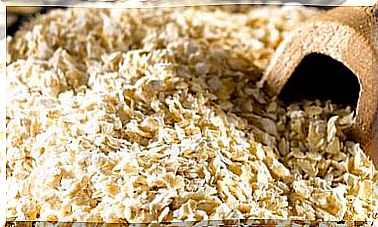12 Steps To Get Rid Of Endocrine Disruptors
Many consumer products contain substances that alter the hormonal system, but you can reduce your contact with them.

They are found everywhere – in the house, food, cosmetics, clothing, the air – and they accumulate in the body. The worrying thing is that numerous studies describe these synthetic substances and their behavior in the human body as if they were female hormones, estrogens: they interact in our body blocking the action of estrogens and other natural hormones and induce alterations that can lead to to reproductive, neurological and metabolic disorders.
How to reduce exposure
Endocrine disruptors are many moreof which it was believed only ten years ago. The current list of known substances reaches 312 and will continue to grow as tests are carried out on the more than 100,000 chemical molecules that the industry has developed.
Despite how widespread they are, however, certain habits can help lessen their impact.
On the diet
1. The dairy products whole and overall animal fat accumulate many endocrine disruptors.
2. Choose organic foods whenever possible , especially in the case of strawberries, lettuce, apples, pears, peaches, spinach, grapes, peppers, oranges, potatoes, tomatoes, zucchini or cucumbers.
3. Do not eat food packaged in plastic, especially those with the following recycling codes:
- 1: release antimony and phthalates
- 3: phthalates
- 6: styrene
- 7: bisphenol A
Also avoid cans with an inner liner.
In hygiene
4. Use glycerin-based soap and other certified organic and natural cosmetic products, including makeup and lipstick.
5. Reject the productswith parabens (ethyl paraben, butyl paraben, methyl paraben, and propyl paraben), triclosan, synthetic fragrances and perfumes, or chemical sunscreens.
At home
6. Replace conventional cleaning products with Ecocert certified detergents or natural products such as bicarbonate, vinegar, lemon, natural soap and hydrogen peroxide.
7. Choose solid wood, metal, glass or ceramic instead of plastics for all kinds of uses: furniture, toys, kitchen utensils … Avoidpans and pots with nonstick plasticTeflon type.
8. Avoid household insecticides and use natural repellants.
Out of home
9. Ask them to use bisphenol-free printing paper in stores.
10. Avoid as much as possible the use of means of transport with combustion engines.
11. Do not dry clean clothes or make sure they do not use perchlorethylene as a solvent to remove stains.
12. Demand that political representatives take measures to control endocrine disruptors and participate in the campaigns of environmental organizations.









